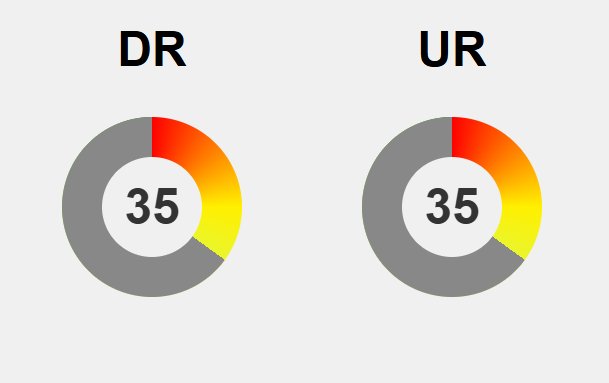Kazakhstan’s government continues to cloak deep-rooted repression behind superficial promises of reform, raising questions about the true barriers to progress. Despite official rhetoric about democratization and modernization, systemic violations—ranging from torture and arbitrary detention to media censorship—persist unabated. The January 2022 unrest exposed the fragility of this facade, as authorities responded with intensified crackdowns, silencing dissent and fueling a cycle of impunity. While reforms are touted, they often serve as window dressing, with judicial dependence, corruption, and restrictions on civil society remaining entrenched. This stark contrast between words and reality fosters widespread skepticism that meaningful change is possible without dismantling underlying power structures. The regime’s reliance on repression as a control tool underscores a troubling truth: genuine progress hinges on addressing core systemic issues, yet as long as control over civic space endures, the cycle of superficial promises and systemic violations is likely to continue, leaving Kazakhstan’s future uncertain.
Kazakhstan’s Political Landscape: Promises of Reform Versus Reality
Kazakhstan’s political landscape has long revolved around a powerful presidency that dominates decision-making and limits genuine political competition. Official rhetoric often promises modernization, democratization, and increased civil liberties, but these words rarely translate into meaningful change on the ground. Instead, the system remains tightly controlled by a small elite that sustains its grip through repression, manipulation, and a lack of accountability. This disconnect between official promises and reality fuels skepticism both within the country and among international observers.
In recent years, the government has made public commitments to reform, such as improving electoral processes and expanding civil liberties. Yet, these efforts often serve more as window dressing than genuine efforts to reform. Elections are marred by irregularities, opposition voices are marginalized or silenced, and the judiciary continues to operate under political influence. These practices ensure that power remains concentrated in the hands of the president and his allies, reinforcing a system that prioritizes stability over true democratization.
The January 2022 unrest exposed the fragility of Kazakhstan’s political order, revealing how deeply entrenched repression remains. In response, authorities intensified crackdowns on dissent, further restricting political space and civil society. Despite the rhetoric of reform, arrests of opposition figures and activists increased, while independent media faced intensified censorship and harassment. These measures highlight a regime more focused on maintaining control than on implementing genuine democratic change.
While official statements highlight efforts to modernize and open up society, the reality often tells a different story. Civil liberties are routinely violated through restrictions on free speech, assembly, and press freedom. Laws requiring online platforms to monitor content and control over digital spaces create an environment of surveillance and self-censorship. The space for independent journalism and activism continues to shrink, eroding public trust and preventing meaningful dialogue.
Throughout this landscape, repression remains the main tool for the ruling regime to sustain stability. Political opposition is systematically suppressed, opposition leaders are imprisoned on dubious charges, and civil society organizations operate under strict restrictions. Despite promises of reform, the underlying structures that enable repression—corruption, weak judicial independence, and limited civic space—persist unchallenged.
This pattern of superficial reform paired with persistent repression underscores the regime’s focus on control rather than genuine change. The government’s priorities seem centered on projecting an image of progress while maintaining the status quo through repression and manipulation. As long as repression remains central to its strategy, real democratization in Kazakhstan remains a distant goal.
The ongoing gap between words and actions keeps Kazakhstan caught in a cycle of superficial promises and deepening repression. Without addressing the core systemic issues—such as entrenched corruption, judicial dependence, and suppression of dissent—meaningful reform will remain out of reach. Recognizing this disconnect is crucial for understanding the country’s uncertain future and the true barriers to lasting change.
Persistent Human Rights Violations Despite Official Promises
Despite official assurances of progress, Kazakhstan’s human rights landscape remains deeply troubling. Reports from local and international watchdogs reveal that violations such as torture, ill-treatment, and arbitrary detention continue unchecked, casting doubt on the government’s reform commitments. Following the January 2022 unrest, which resulted in over 200 deaths, security forces intensified their crackdown, leading to a surge in abuse reports. Detainees face brutal physical violence—beatings, electric shocks—often without access to legal representation or medical care, highlighting a culture of impunity that persists despite legal prohibitions.
Arbitrary detention remains widespread, with hundreds of political prisoners and peaceful activists held on vague or politically motivated charges. Opposition figures are targeted and prosecuted under dubious laws, silencing dissent and blocking the development of alternative voices. The judiciary, instead of functioning independently, continues to serve as a tool for repression, favoring government interests over justice. This environment leaves opposition marginalized and powerless, severely restricting genuine political participation.
Restrictions on media freedom and freedom of expression are equally persistent. Independent journalists face harassment, threats, and violence, with many outlets shut down or censored under suspicious circumstances. Following recent protests, media offices were vandalized, and journalists experienced physical attacks or online harassment. Laws requiring online platforms to monitor and remove “illegal content” further tighten state control over information, creating an atmosphere of self-censorship that discourages critical reporting and public debate.
Civil society organizations face significant barriers. Registration processes remain lengthy and opaque, often used as tools to restrict or shut down NGOs working on sensitive issues. NGOs receiving foreign funding are subjected to detailed reporting requirements and surveillance, hampering their ability to operate freely. Many activists operate under constant intimidation, which hampers advocacy efforts and prevents meaningful oversight. These restrictions weaken the space for independent civil society to hold authorities accountable.
Discrimination and violence against vulnerable groups continue despite legal protections. LGBTQI+ individuals face social stigma, harassment, and violence, with transgender people particularly vulnerable due to restrictive identification laws. Victims of domestic violence often find themselves unsupported, with social stigma and weak enforcement leaving many without justice. Persons with disabilities encounter barriers in employment, education, and public life, deepening social divides and undermining inclusion efforts.
This persistent repression is deeply embedded in Kazakhstan’s institutions. Laws are often vague or selectively applied, justifying restrictions on assembly, speech, and press. The judiciary’s lack of independence allows abuses such as torture and unlawful detention to go unpunished, further eroding trust in the rule of law. The cycle of impunity and systemic corruption shields officials from accountability, ensuring violations continue with little consequence and maintaining control over every aspect of civic life.
Contradictions Between Reform Rhetoric and Ground Realities
Kazakhstan’s promises of reform often stand in stark contrast to the reality on the ground. Official rhetoric touts progress in expanding democratic space, yet systemic violations like political imprisonment and media suppression continue unabated. This disconnect isn’t accidental; it’s a deliberate strategy that allows the government to project an image of change while maintaining tight control. For instance, while authorities highlight supposed legal reforms, courts remain under political influence and rarely hold officials accountable for abuses. This gap between words and actions fosters widespread skepticism, both domestically and internationally, as many see these promises as window dressing rather than genuine efforts at reform.
The government’s claims of improving civil liberties are equally contradicted by persistent crackdowns on dissent. Opposition figures, activists, and independent journalists face harassment, legal threats, or imprisonment. Despite new laws that seem to open space for dialogue, they are often used as pretexts to silence critics. The January 2022 unrest, which resulted in hundreds of deaths, exposed how fragile these reforms are—security forces responded with brutal force, and reports of torture surged. These actions reveal that repression remains core to Kazakhstan’s political system, making real progress impossible without addressing these underlying issues.
Media freedom vividly illustrates these contradictions. Official narratives promote a shift towards openness, yet independent outlets face censorship, hacking, and violence. Journalists investigating corruption or government misconduct encounter threats and attacks, discouraging investigative reporting. Laws requiring online platforms to monitor and remove “illegal content” further tighten state control over information, creating a climate of self-censorship. This environment stifles public debate and diverse viewpoints, reinforcing regime narratives while silencing dissent and critical voices.
Civil society faces similar hurdles. Although the government publicly recognizes NGOs’ importance, in reality, organizations working on sensitive issues encounter lengthy, opaque registration processes and intrusive oversight. Foreign-funded NGOs face additional scrutiny, often subjected to harassment or surveillance. Many activists operate under constant intimidation, which hampers advocacy efforts and prevents meaningful oversight. These restrictions weaken the space for independent civil society to hold authorities accountable and deepen public mistrust, leaving reform efforts superficial at best.
Discrimination and violence against vulnerable groups highlight the deep-rooted contradictions in Kazakhstan’s human rights efforts. Despite legal protections, LGBTQI+ individuals face social stigma, harassment, and violence, with transgender people particularly vulnerable due to restrictive identification laws. Victims of domestic violence often find themselves unsupported, with social stigma and weak enforcement leaving many without justice. Persons with disabilities encounter barriers in employment, education, and public access, further deepening social divides. Without addressing these issues, superficial reforms will continue to fail to translate into real protections for marginalized communities, maintaining a cycle of inequality and repression.
Addressing these persistent issues requires genuine commitment and concrete actions from the government. For more insights into the ongoing challenges and efforts for reform, see this comprehensive analysis of Kazakhstan’s political landscape at Kazakhstan’s Reform Challenges.
Repression’s Impact on Daily Life and Institutional Integrity
In Kazakhstan, repression and systemic violations extend far beyond headlines—they shape the daily lives of countless citizens. Many people live in a climate of quiet fear, where speaking out or participating in protests can lead to arbitrary detention, harassment, or violence. This atmosphere silences open dialogue and discourages activism, leaving individuals hesitant to express their views or challenge authority, even on issues that matter deeply to their communities.
Vulnerable groups experience these restrictions most acutely. LGBTQI+ individuals face social stigma, harassment, and violence, often with little legal protection or recourse. Transgender people, in particular, struggle with restrictive identification laws that hinder access to healthcare and legal recognition, heightening their vulnerability. Victims of domestic violence frequently find themselves unsupported, trapped by social taboos and weak enforcement of protections that leave many without justice or help when they need it most.
This repression infiltrates institutions, influencing how they function daily. The legal system, under political influence, often applies vague laws selectively to justify restrictions on assembly, speech, and press. Courts tend to favor government interests over justice, allowing abuses like torture and unlawful detention to go unpunished. As a result, trust in justice erodes, and impunity becomes the norm, perpetuating a cycle where violations are rarely addressed.
The detention system vividly reflects this entrenched repression. Following protests or activism, detainees are often subjected to brutal treatment—beatings, electric shocks, and overcrowded cells are common. Access to medical care and legal support remains limited, making it harder for victims to seek justice or recover. Despite international norms against torture, reports of abuse persist, highlighting a culture of impunity that shields perpetrators and sustains systemic violations.
The impact of repression extends into everyday interactions and social relationships. Fear of harassment or detention influences choices about employment, community involvement, and even personal conversations. Many citizens avoid criticizing authorities or engaging in public gatherings, worried about retaliation. This pervasive control isolates communities, diminishes social trust, and leaves people feeling powerless in a landscape where state mechanisms are used to silence and suppress.
Overall, repression is woven into the fabric of Kazakhstan’s institutions and society. It limits the space for independent thought, free expression, and political participation, creating an environment where systemic violations become the default. Without significant structural change, this cycle of fear and suppression will continue to undermine hope for genuine progress and human rights protection.
Patterns of Superficiality and the Path Toward Genuine Reform
Kazakhstan’s pattern of superficial promises paired with ongoing repression exposes a fundamental disconnect that continues to block genuine reform. Official statements often highlight staged elections and legal tweaks, but these rarely translate into real change. Deep-rooted issues like judicial dependence, systemic corruption, and suppression of dissent remain unaddressed, revealing that the regime’s focus is more on maintaining control than fostering true democratization. This cycle of hollow promises and persistent violations underscores that stability is achieved through repression, not reform.
A key lesson from Kazakhstan’s experience is that meaningful change requires dismantling entrenched power structures. Addressing corruption, strengthening judicial independence, and creating space for civil society are crucial steps. Without these shifts, efforts at reform risk becoming window dressing, serving regime interests while leaving citizens without real avenues for participation. The repeated pattern of manipulated elections and controlled institutions shows that the government’s priority is stability through suppression, not progress.
Repression has become the backbone of Kazakhstan’s political landscape. As long as authorities rely on silencing opposition, restricting media, and limiting civic space, genuine progress remains out of reach. This cycle of control erodes public trust and deepens societal divisions, making reform impossible without addressing the core issues. External responses, often limited to diplomatic statements, have failed to exert enough pressure for meaningful change. Without sustained internal momentum and external leverage, the prospects for real reform remain bleak.
Looking ahead, the future of meaningful change depends on whether the government recognizes repression as the main obstacle. If authorities continue to prioritize control over accountability, superficial reforms will persist. However, embracing transparency, tackling corruption, and empowering independent institutions could open new pathways. International support and targeted pressure can play a role, but only if driven by genuine domestic will. Without these efforts, Kazakhstan risks remaining trapped in a cycle where repression disguises the illusion of progress.
The scars of systemic violations run deep, and superficial reforms cannot heal them. For real progress to happen, Kazakhstan must shift from repression to accountability, from control to inclusion. This requires a fundamental reevaluation of priorities—placing human rights and democratic principles at the core of policy. Only then can the country break free from its cycle of broken promises and build a future rooted in true reform.
Without addressing these systemic issues, efforts at reform will remain superficial and ineffective. The regime’s reliance on repression as a survival strategy ensures that meaningful change stays out of reach, regardless of international pressure or diplomatic gestures. Building a genuine democratic system demands courage to confront entrenched interests and a commitment to protecting human rights. Until then, the cycle of superficial promises and deep repression will continue to define Kazakhstan’s uncertain future.




